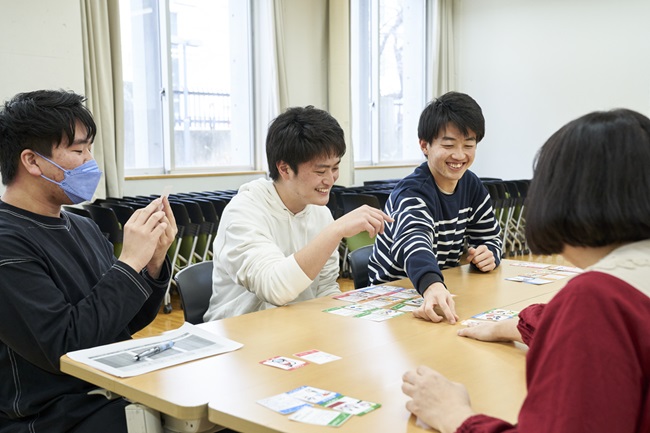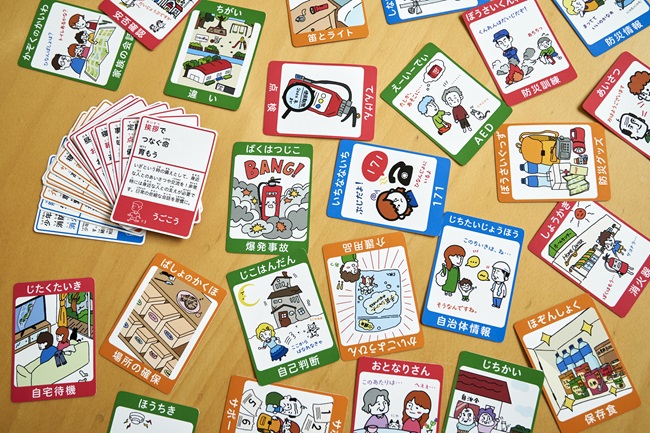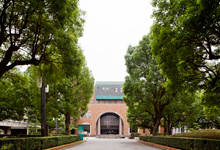Chiba University of Commerce will reorganize its entire faculty in 2025. The current structure of 5 faculties and 7 departments will be changed to 4 faculties and 6 departments. One of the objectives is to update the practical education that has been provided at the university for many years. In order to respond to increasingly complex social issues, we will provide students with future-oriented learning.
The new faculty that will be established as a result of the reorganization will be the Faculty of Policy Studies. We asked Professor Kazunari Togawa, currently of the Faculty of Policy and Information Studies, about its purpose and the characteristics of the curriculum.

A required “public” perspective
The Faculty of Policy Studies consists of two departments: the Department of Economics and the Department of Policy Information. Each department offers three courses, allowing students to hone their specialized areas such as policy planning, data analysis, and media expression.
The aim of the entire faculty is to develop human resources who have a ``public'' perspective and are willing to disseminate information and solve problems in a way that resonates with people. Regarding the importance of the public perspective, Professor Togawa says the following.
``Cases that occur in the real world are becoming more complex, and there are problems that the government is not able to handle.This is a problem that arises due to so-called gap cases, but we need to think about how to deal with them as quickly as possible. At times like this, it becomes even more important to think about policies together with citizens.The government will also need to be close to citizens and implement policies that resonate with them.What is needed is a public perspective. This is a person who can look at society with an open mind and be able to discover and solve problems."
In order to foster a public perspective, the school will focus on education that combines theory and practice. For example, there is a new "Policy Design Practice" class being held in the Department of Policy Information Studies. Students travel to local communities to conduct fieldwork and work together with people outside the university to solve problems.
``You won't find out if there are gaps in the area unless you go out into the area.However, you won't notice the problem just by walking around, so we plan to hand out inspection sheets beforehand so that you can check for problems that you want to pay attention to.'' After returning to the classroom, ask students to present their feelings in comparison to the area where they lived.Then, they will be able to see the current situation in their area, which they previously thought was unrelated, as their own personal problem. Furthermore, we identify issues through group work and formulate a causal hypothesis by combining them with the theories we have already learned.Finally, we verify the hypothesis and disseminate the results to others.We gain empathy. I will hone my public perspective based on the experience of continuing to formulate the strategies necessary for policy.”

"Co-creation" to solve problems
"Policy Design Practice" is taught by three faculty members with different specialized fields. Diverse experts, students, and people working to solve problems in the region will join forces to confront increasingly complex social issues. "Co-creation," which combines different perspectives and knowledge and creates new urban development strategies using unprecedented ideas, is essential for guiding society in a better direction.
An example of how the current Department of Policy and Information Studies solved social issues through co-creation prior to the reorganization was the production of ``Disaster Prevention Karuta.''
“Disaster prevention karuta is one of the devices to create a disaster-resilient town.If it can be applied to various regions, it can be arranged in any number of ways for as many people as possible, young and old, men and women, and in different regions. The students thought about what they could do and created Karuta that can be played by everyone from children to the elderly. Karuta incorporates knowledge about disaster prevention so that people can naturally think about disaster prevention measures while playing."
Disaster Prevention Karuta was created by Togawa Seminar, which specializes in urban development and political science, and Yoshiba Seminar, which specializes in graphic design, in collaboration with Kamagaya Management Lab, a general incorporated association that carries out civic activities in Chiba Prefecture.
"At Togawa Seminar, we can survey people's awareness of disaster prevention and analyze issues through interviews, but we don't have the technology to communicate this to people in the form of karuta. That's where the power of design comes in. We collaborated with students from the Yoshiba seminar to create picture cards, reading cards, etc. It was because of the students' co-creation with the local community that we were able to take the first step toward implementing problem-solving devices in society. is."

Balancing the development of expertise and a broad perspective
After the reorganization, the university will also focus on basic education. First-year students choose classes regardless of faculty or department and acquire a wide range of knowledge. Even in specialized education, students first learn the basics of each department and course, then choose the course to which they belong and acquire more specialized content. By not narrowing down your field too much from the beginning, you can deepen your learning at the Faculty of Policy Studies.
“When solving a problem, more than one specialized field is required.For example, when considering disaster recovery, there are engineering problems (tsunami, embankment, debris removal, etc. recovery), sociological problems (solitude and bonds), Economic issues (employment/social security), political issues (urban policy, disparity in votes), etc. These issues cannot be solved unless a variety of experts cooperate, combining both hard and soft aspects. This is why it is important to have an environment where you can slowly learn the basics of a wide range of fields.At the Faculty of Policy Studies, we cultivate students who can deal with issues while increasing their specialization and flexibly incorporating other perspectives. .”
In order to achieve both field-independent learning and systematic learning, we will also introduce a system called "units." A unit is a combination of related subjects based on a specific theme such as public policy. As students complete the units, they become aware of the connections between each subject, making it easier to think of solutions to increasingly complex social problems.
"The first year students explore what is available in various units, and the second year students use the units to try what they want to do. The third year students try to deepen what they have tried and aim to realize policies that are close to people. I am a student in my 1th year.Fourth year students summarize what they have learned in a graduation thesis and design it in a form that can be implemented in society.We also welcome learning that crosses departments and courses. I hope that they will take appropriate courses in the fields that I learned from them.”
There are a wide variety of possible career paths after graduation. There are a wide range of opportunities for success, including people who use the media to revitalize local communities, civil servants with a broad perspective who are aware of the intentions of others, and business leaders who can utilize data. The public perspective and the ability to co-create with others and tackle social issues acquired during university days will be great weapons for graduates. Professor Togawa said that this is why he wants to study together with many students who are interested in society and people.
“It would be difficult to do it alone, but we would like to invite people who have the desire to think together with others, to be close to others, and to create a future where people can empathize with each other to come.What can you do to achieve this? Or, let's look for it during our four years at university."
New education at the Faculty of Policy Studies starting in 2025. We will further enhance learning that combines public policy theory and practice, producing students with a broad perspective and a high level of expertise. The new educational program of the Faculty of Policy Studies, which combines media-related subjects to train creativity and practical subjects to develop planning skills, will be attractive to high school students who want to hone their practical skills that will be useful in the workplace. If you are interested, why not check out Chiba University of Commerce's website and open campus?

